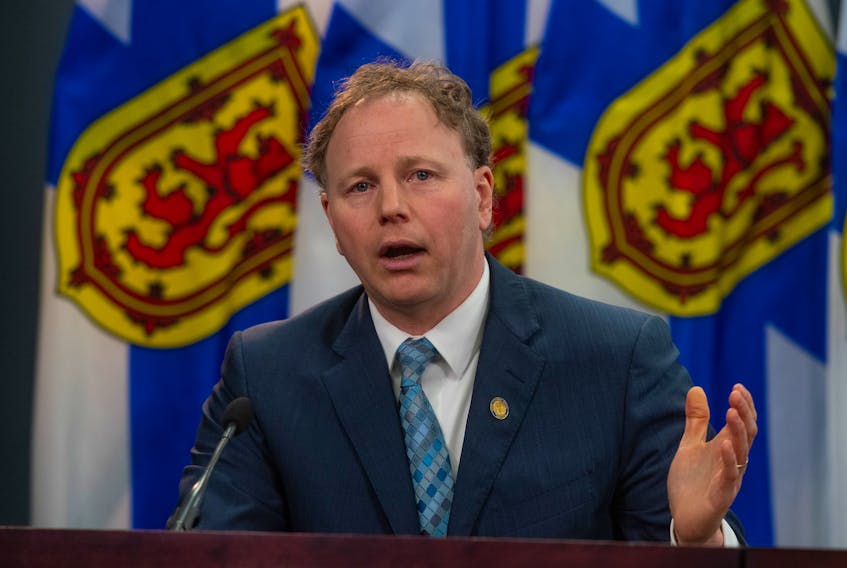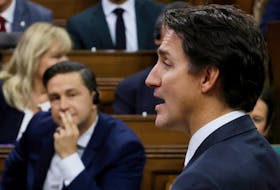With the federal budget tabled, it's time to talk about the big-ticket items, says Nova Scotia Finance Minister Allan MacMaster.
They include housing, infrastructure funding, pharmacare, dental care and a national school food program — and MacMaster wants to get to them in short order.
While MacMaster said the federal budget tabled Tuesday includes some things that will help Nova Scotians, he says he’s concerned the country is falling deeper into debt. Ottawa is projecting to spend $52.9 billion in the next five years and is projecting a deficit of about $40 billion in the 2024-25 fiscal year. The debt is at $1.4 trillion.
“The federal government has spent a lot of money, said MacMaster. “Governments have to be very careful adding to their debt with budget deficits. It’s hard to have a crystal ball to see what the future holds to see if the country keeps growing and tax revenues keep growing, but a prudent person I think would always be trying to live within their means," he said.
“I think this government has lived beyond its means in recent years and has added significantly to the debt of the country."
But MacMaster stopped short of suggesting a wealth tax would help.
“We have a progressive tax system in Canada and all the provinces are part of it," said MacMaster. "People who earn more are generally taxed already."
Lars Osberg, an economist professor at Dalhousie University, thinks differently. He was disappointed that the government squelched earlier talk of a wealth tax.
“It’s not in the budget, you’ve seen dramatic gains of wealth at the top of the wealth distribution during COVID, and that really isn’t being talked about at all," said the professor.
Other countries have excess-profit tax. He says Canada has the lowest marginal effective tax rates in the G7.
Finance Minister Chrystia Freeland also announced new capital gains taxes, levelling higher taxes on capital gains for large companies and people who make more than $250,000 when they sell stock or property other than their primary residence. The portion of capital gains subject to tax for high earners, corporations and trusts will be raised from one-half to two-thirds as of June 25, 2024.
Right now, half of capital gains are taxed, compared to 100 per cent of a person’s employment income. That will remain the case for the first $250,000 of capital gains income, but will rise on income above that level to 66.6 per cent.
Osberg said those changes are welcome but don’t go far enough, noting that three-quarters of capital gains were subject to tax in the 1980s and early 1990s.
The budget allocates $8.5 billion to housing to help alleviate the housing crisis. The focus is on helping younger people own a home. The government pledges that the investment will lead to roughly four million more homes by 2031. Osberg says that’s a good start. But he says the budget doesn’t zero in on one key area: public housing. It’s been largely neglected since the federal government got out of social housing in the 1990s.
“You could have talked about public housing in a budget. Housing in Canada doesn’t serve the needs of low-income or low middle-income people. Most developed countries have much larger social housing sector than Canada. If you’re going to have affordable housing you’ve got to have some large sector that’s addressing the problem directly."
The economist says he's also frustrated by what he calls government spin around the budget. The Liberals have focused on the economic gap between millennials and Generation Z at the bottom and older demographics at the top.
“There is inequality across demographics but it’s tiny in comparison to the inequalities within a given generation," said Osberg. "You want to talk about fairness, talk about fairness for the middle class, the lower middle class and fairness for the poor. The poor and the middle class come in all ages."
He said the federal government used to play a big role in financing the Canada Assistance Plan up until the mid 1990s. Now it no longer exists.
“The federal government has largely ignored the poor within each generation. And it’s not being addressed in this budget."
With files from the National Post









